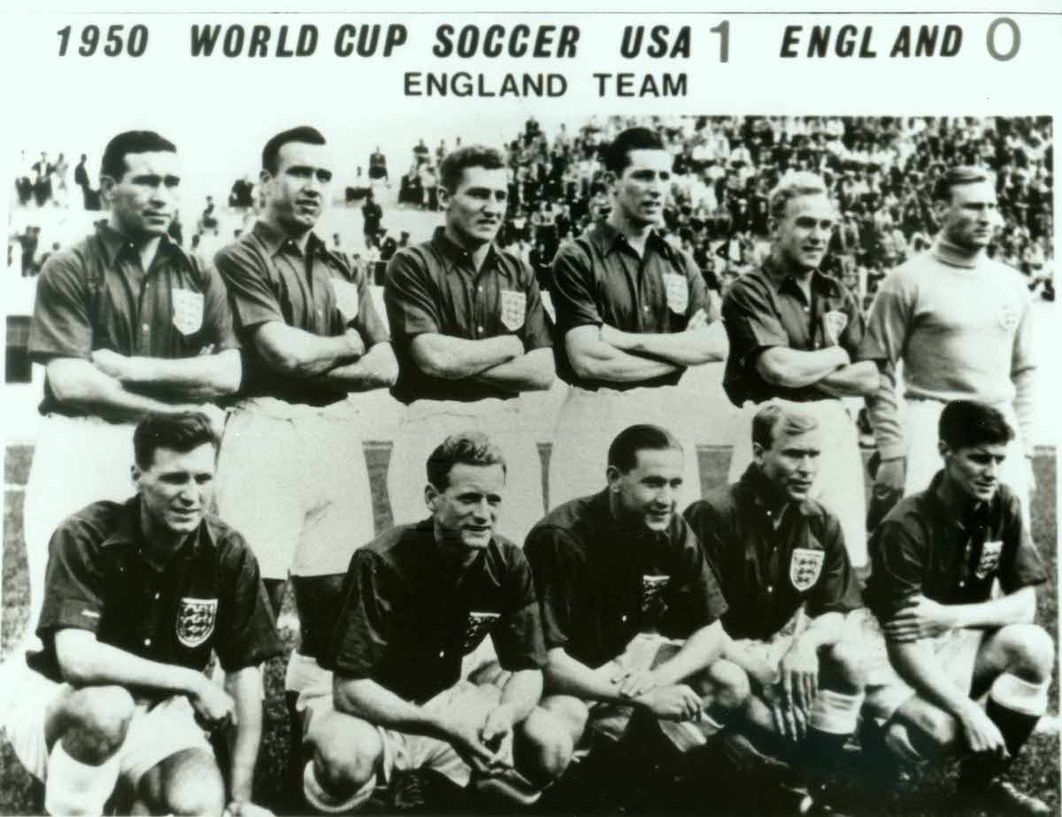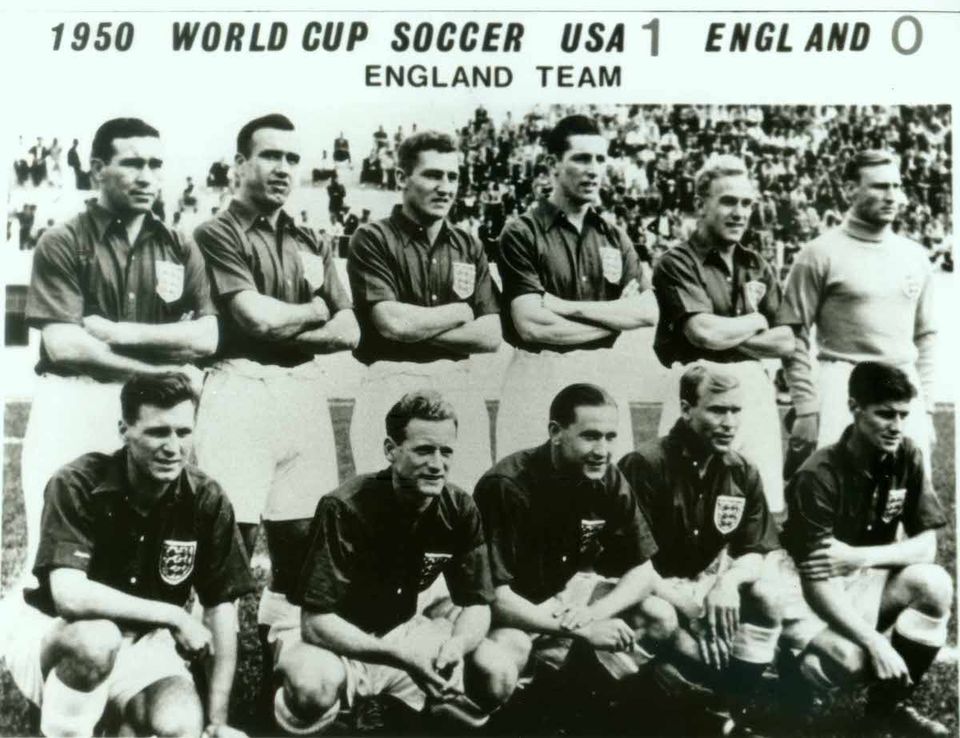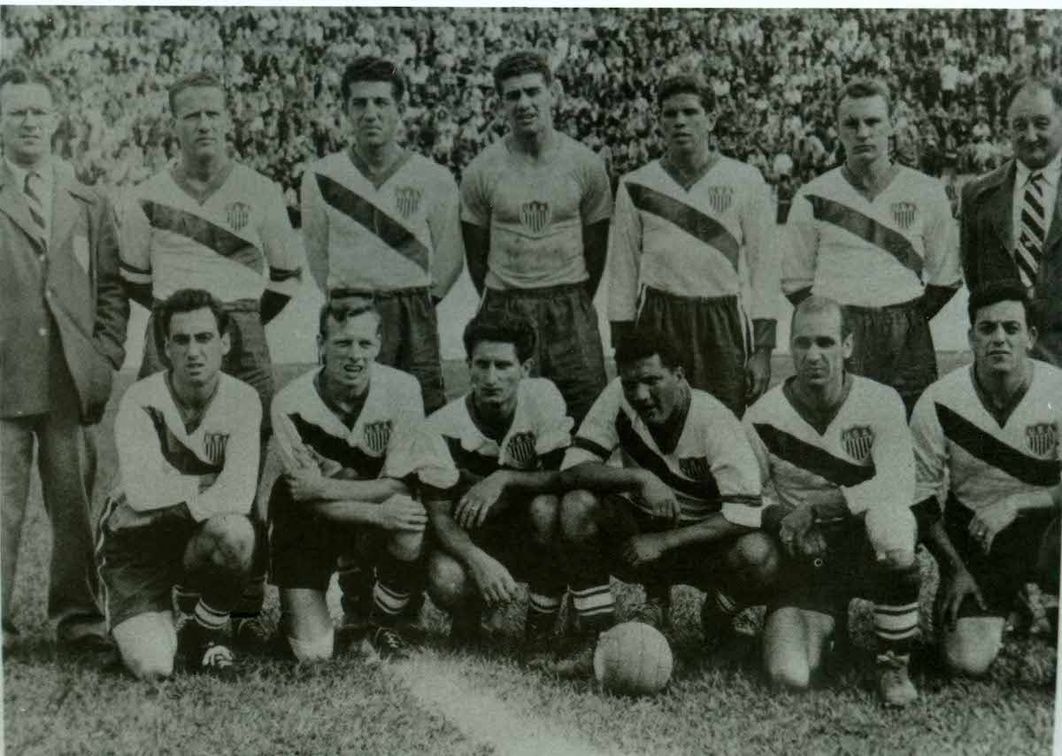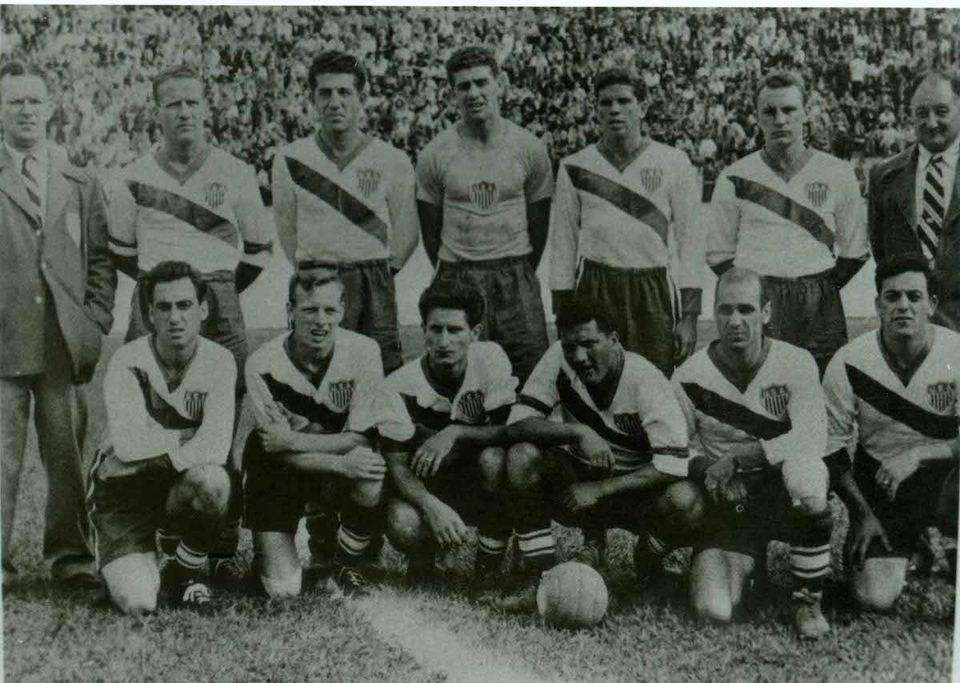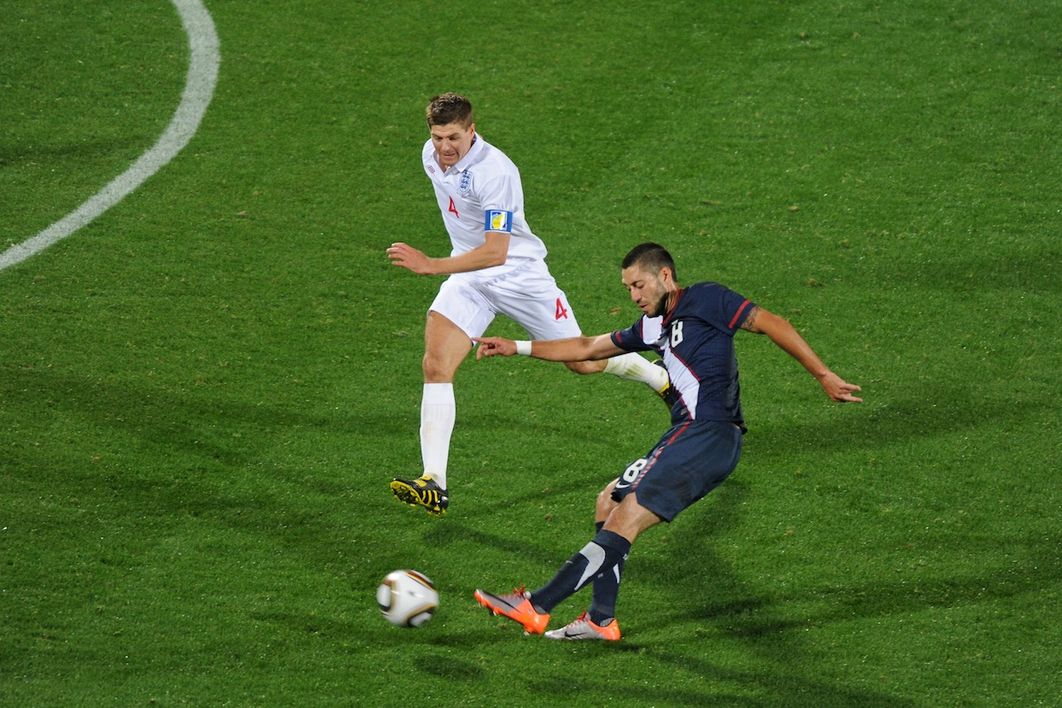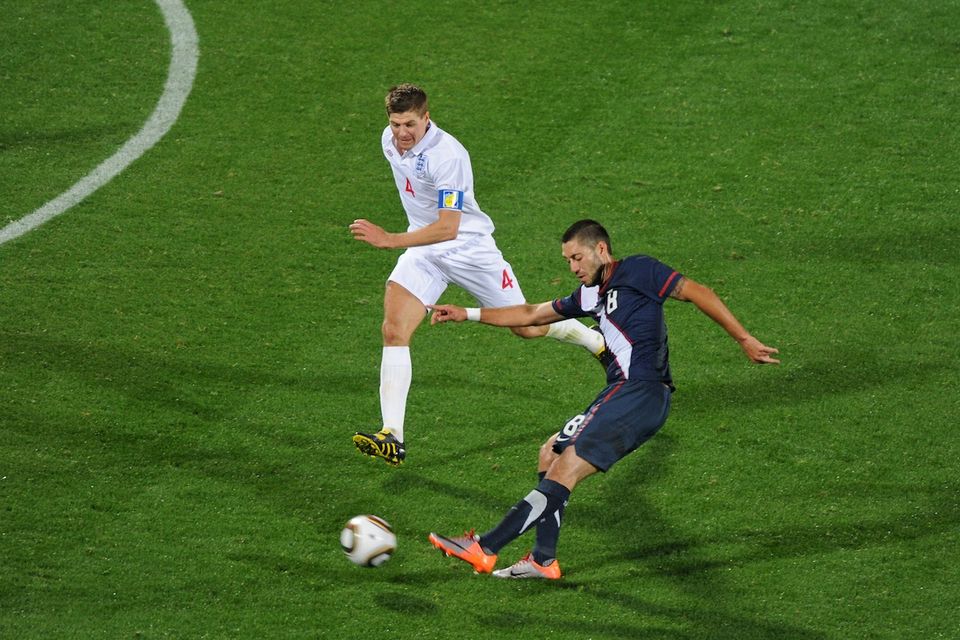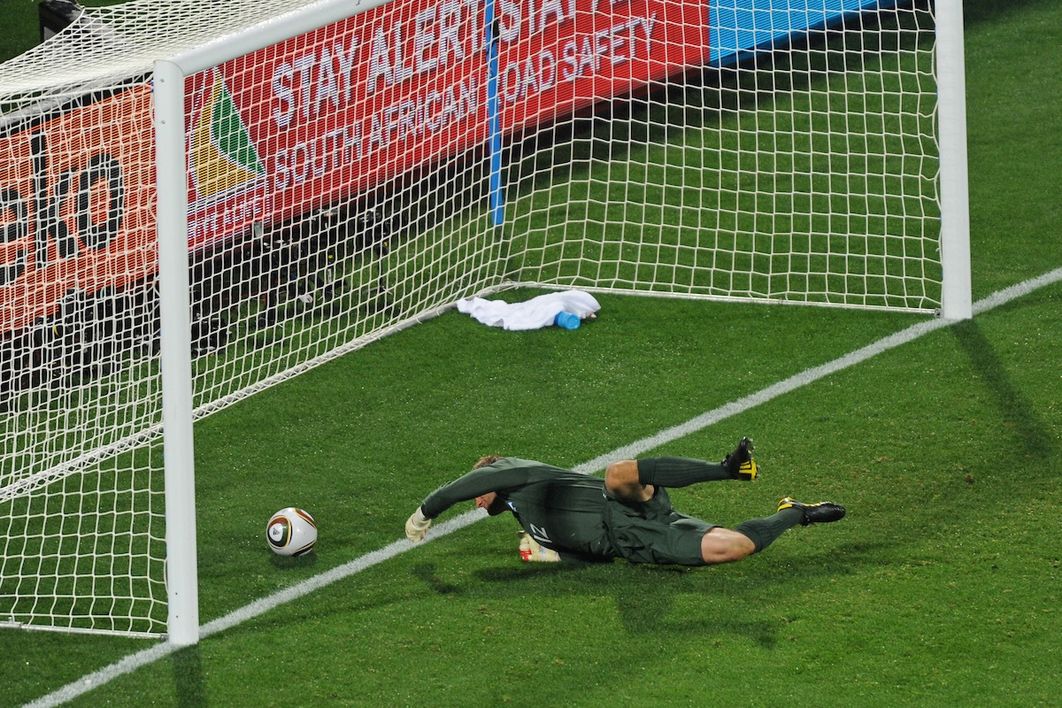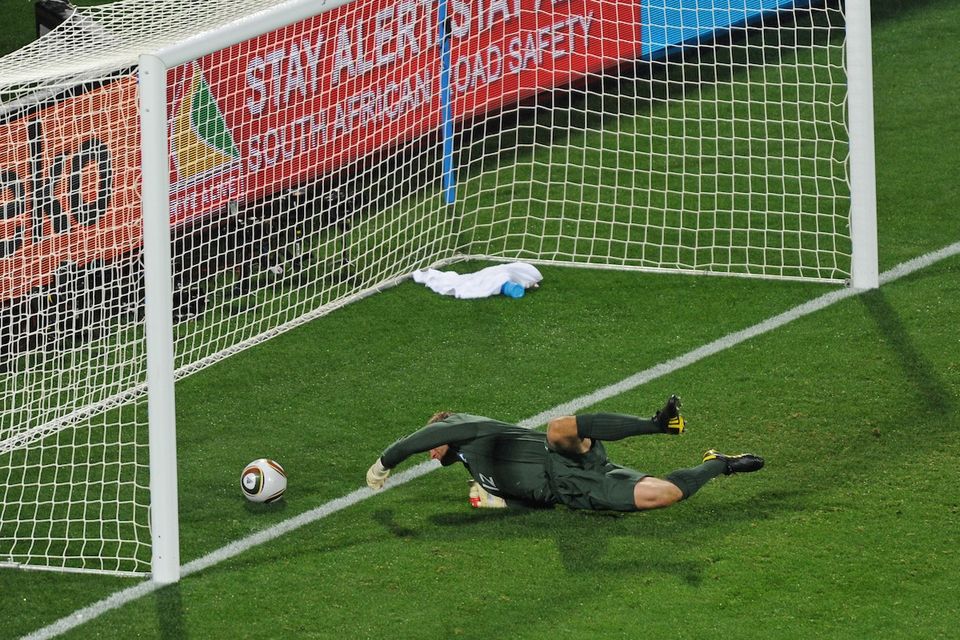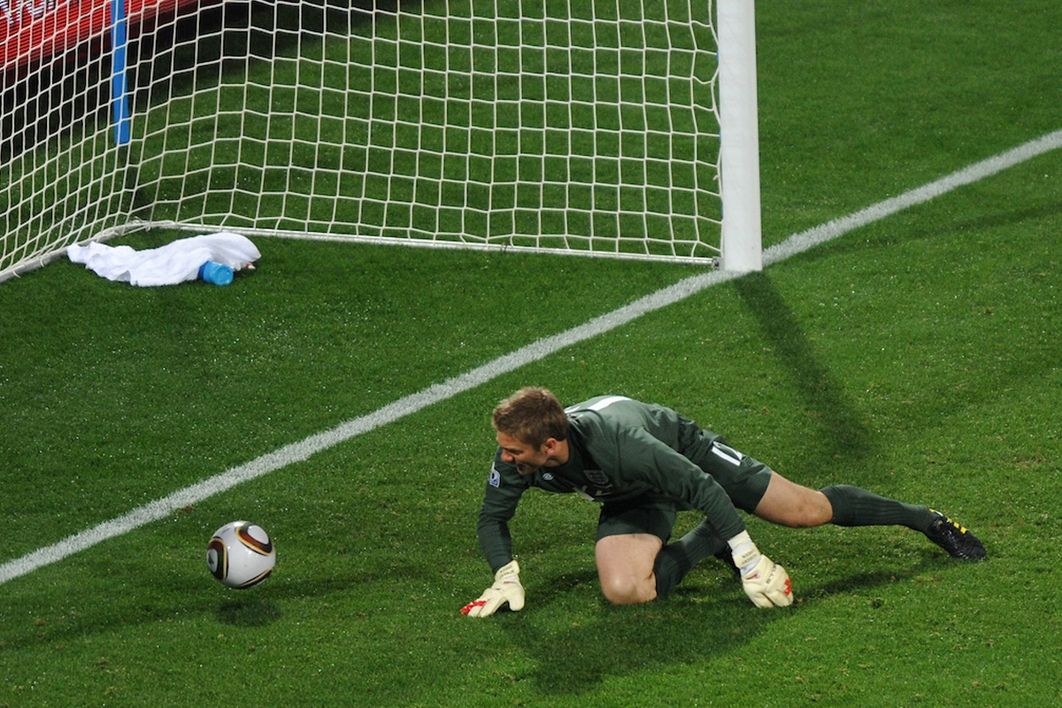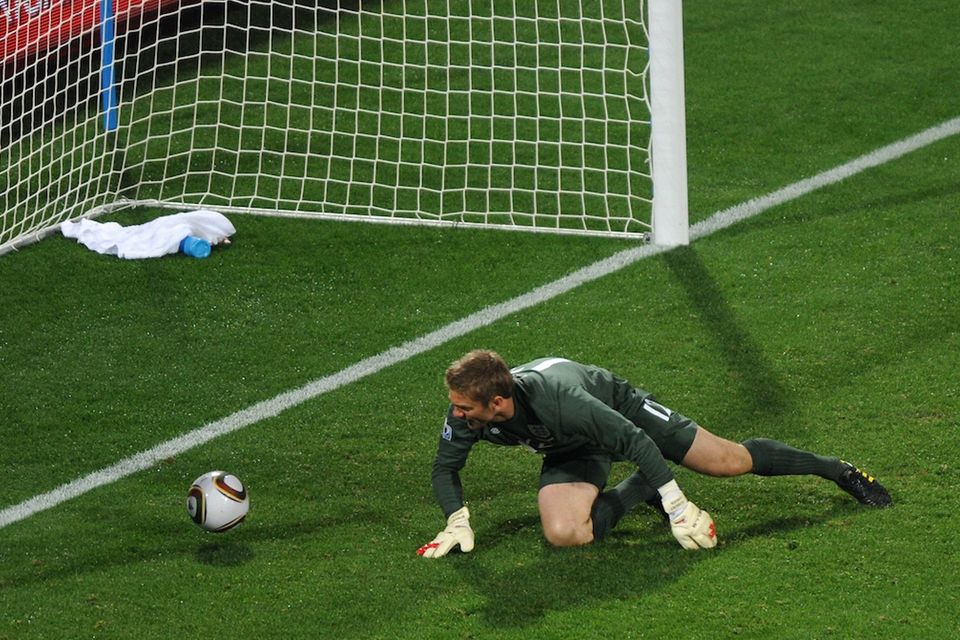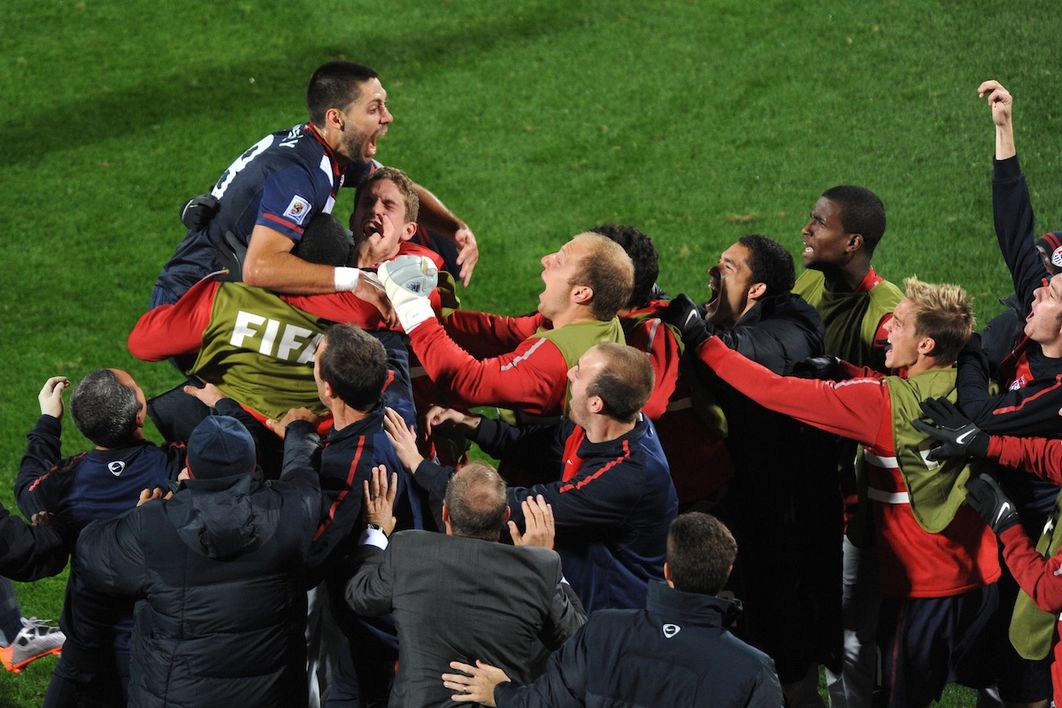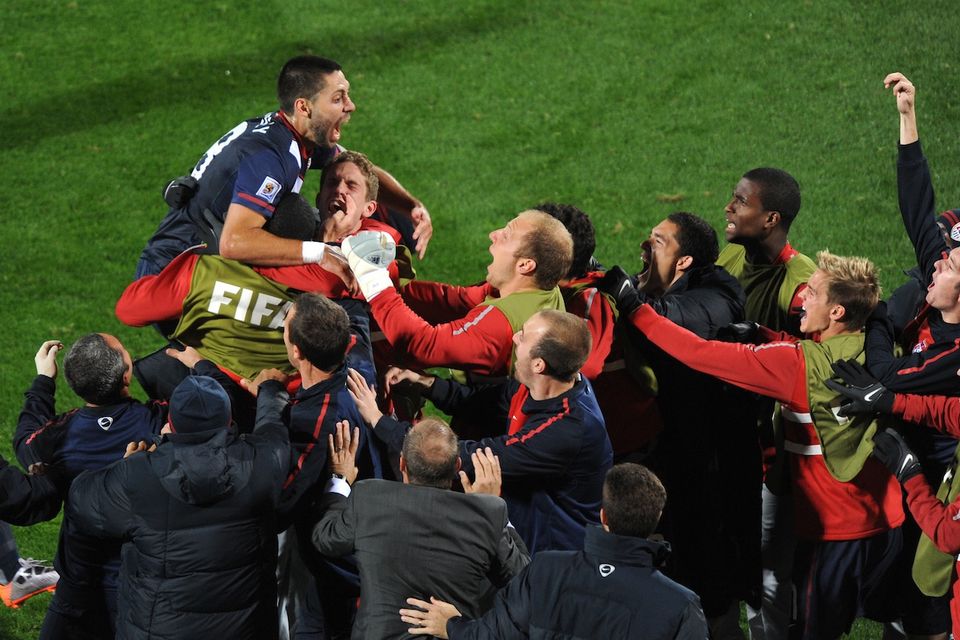Rivalry Renewed: USMNT And England Set For Third World Cup Clash
USMNT Faces England in Second Game of 2022 FIFA World Cup on Friday, November 25 (2 p.m. ET on FOX, Telemundo); Presented by Visa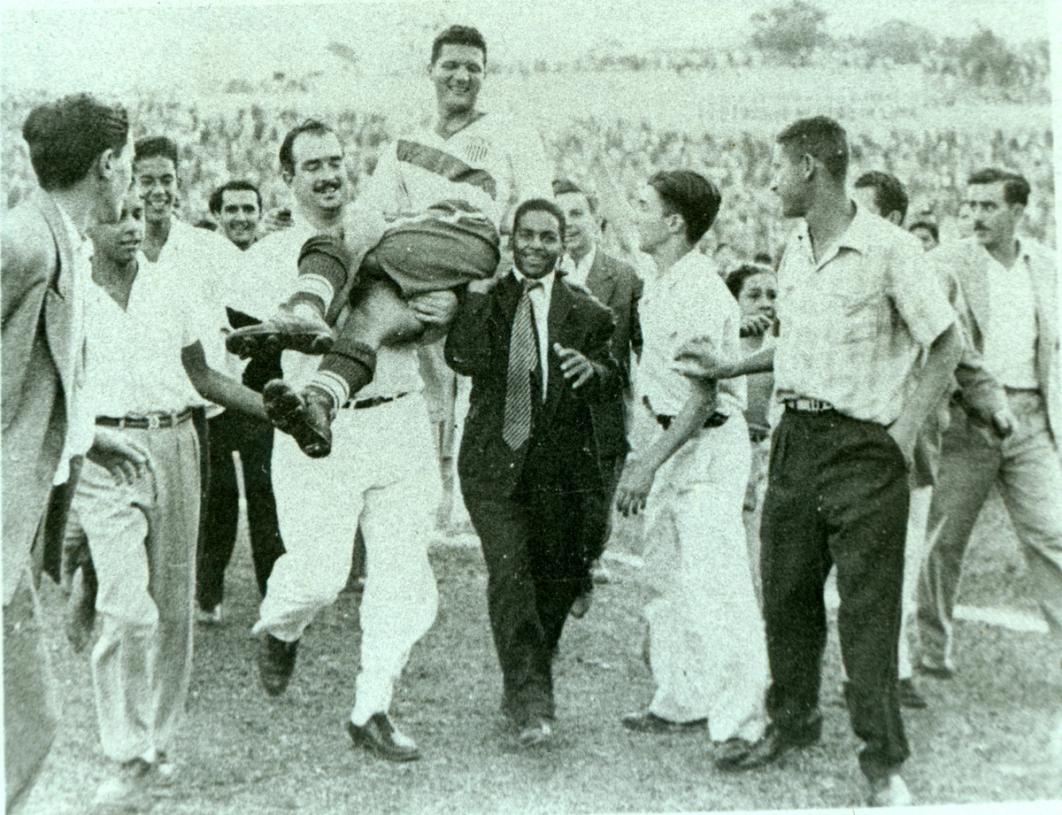
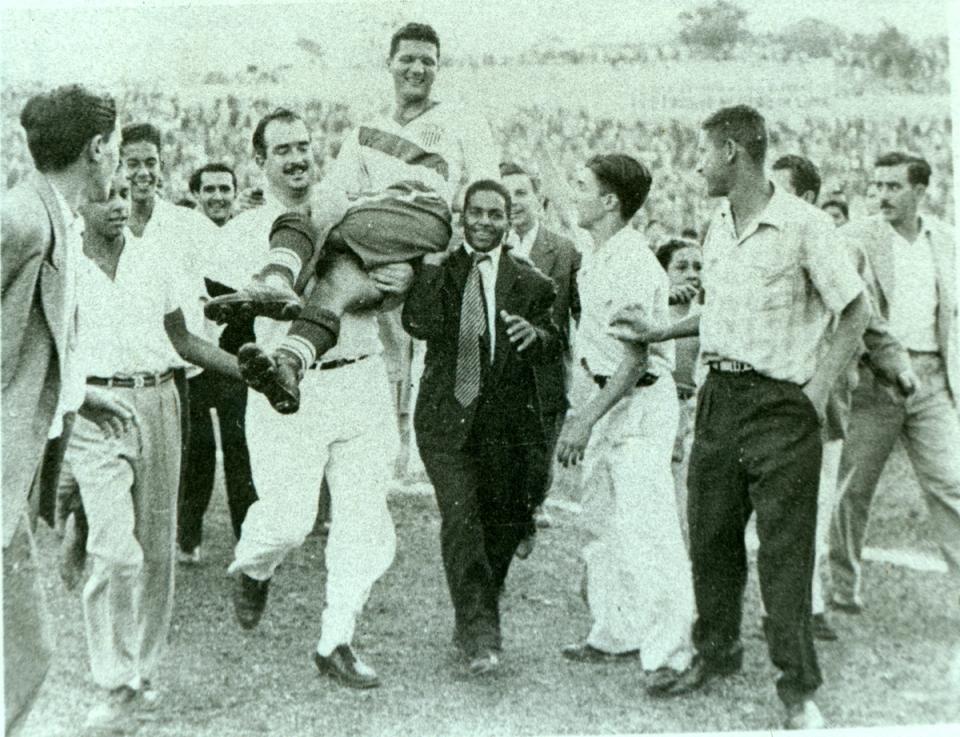


As the U.S. Men's National Team meets England in a vital Group B match at the 2022 FIFA World Cup on Nov. 25, we look back at a pair of encounters between the two rivals at previous World Cups. The first match was the USA’s historic 1-0 upset in Brazil in 1950, the other a 1-1 draw in South Africa in 2010.
Some four decades after the U.S. Men's National Team pulled off one of the greatest upsets in World Cup history, if not the No. 1 shocker all-time, Harry Keough still marveled at what the Americans accomplished on June 29, 1950.
They defeated England, 1-0, in Belo Horizonte, Brazil that day.
"We never dreamt in our wildest dreams or thought that anything like this was possible," he said.
"It just shows you the game was one in a million. You hustle and you hold off a team for a while, but you usually don't hold off a team that is much better than you as long as we did."
Keough, nor any of his legendary teammates are around anymore to recount their amazing story, as they all have passed away.
However, in several interviews with players over the 40 years after the match, we've pieced together what transpired on the field that late June day.
After years of shunning the global competition, England finally decided to participate in the World Cup and was considered one of the tournament favorites in its first trip to the tournament, although it did not have a consistent international track record.
The odds were steep against the U.S to pull off an upset.
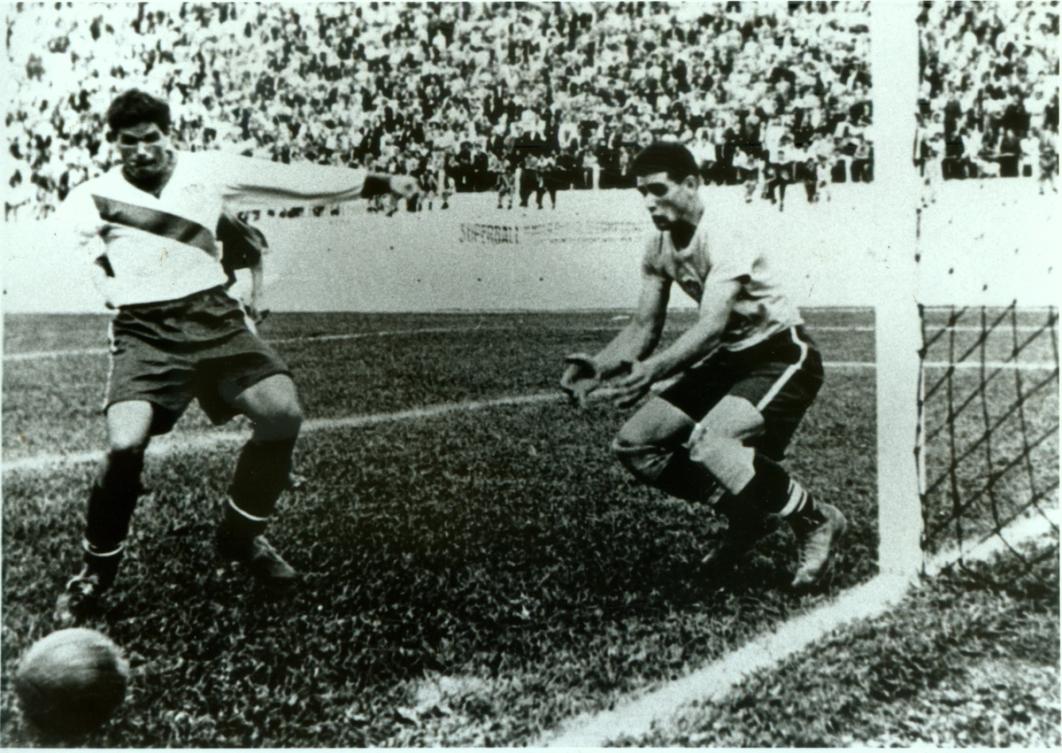
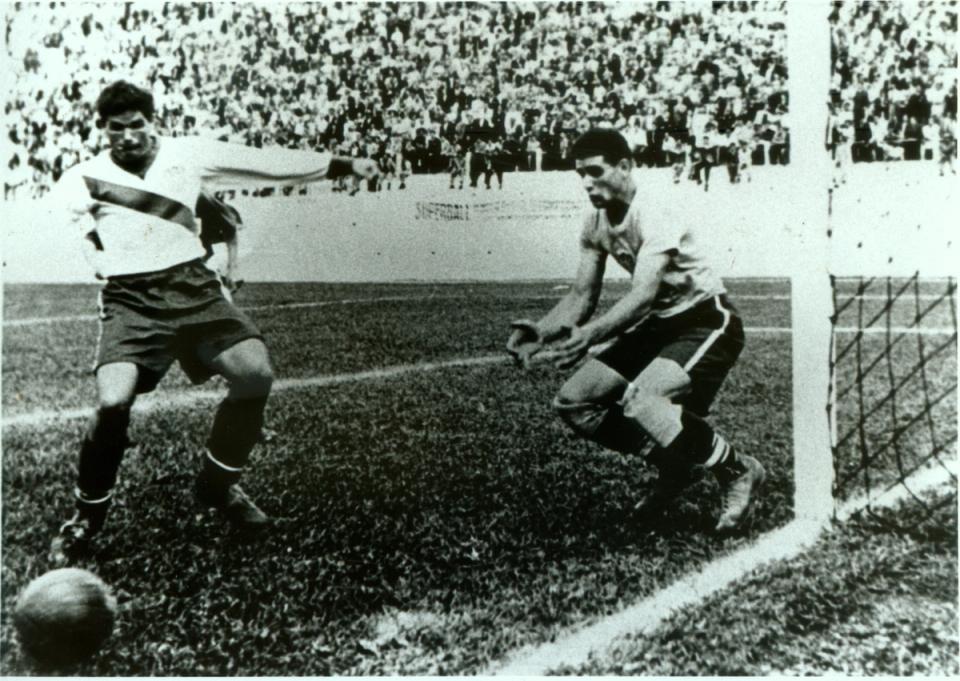
England’s squad had reportedly been insured for $3 million (equal to $37 million in today's currency). The squad boasted the legendary Stanley Matthews, regarded as one of the best, if not the best player of his time.
The U.S. team was a bunch of glorified amateurs -- sometimes earning just $25 a match -- from the American Soccer League and local teams, mostly from the east coast and St. Louis.
"No one made a living out of soccer back then," left halfback Walter Bahr said. "It was just like amateur games overseas played on the weekend. The National Team got together the day before a game with little preparation."
Added left fullback Joe Maca: "I think we had one practice game [before the World Cup]."
The soccer universe was ready for a royal drubbing even after England manager Walter Winterbottom decided not to use Matthews.
While trying to keep their thoughts positive, the USMNT realized it would be an uphill battle.
"They thought we were a doormat and eventually would score seven or eight goals," center halfback Charles Colombo said.
"We went into the game hoping to keep the score down," goalkeeper Frank Borghi said. "If we could have held them to five or six goals, we would have called it a moral victory."
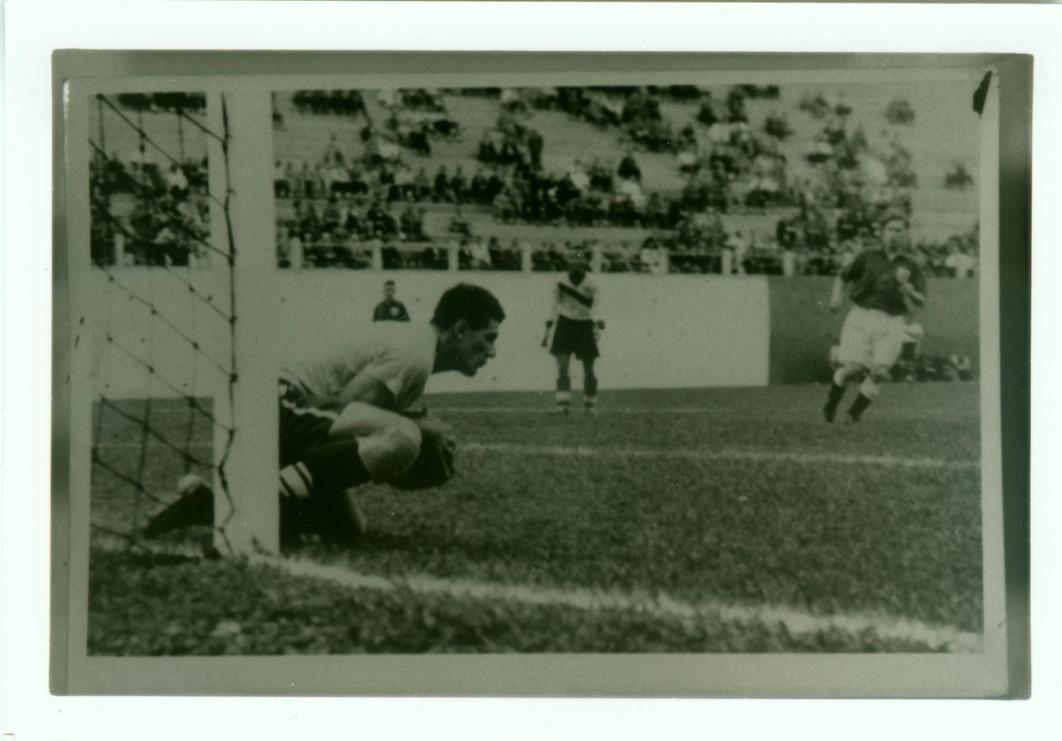
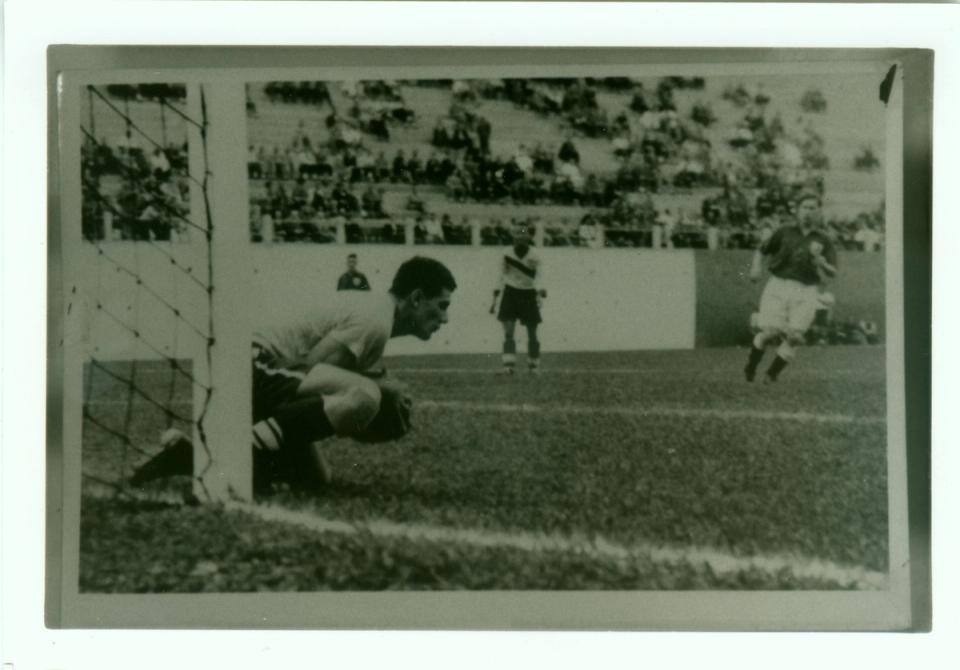
Inside right Gino Pariani added: "You're playing against a team like England. We definitely figured we'd lose."
The Americans dropped their first match in Brazil, a 3-1 loss to Spain in Curitiba on June 25. They enjoyed a lead on Pariani's 17th-minute goal, but the Spaniards broke through with three unanswered tallies in the final nine minutes.
Regardless of the outcome, the USMNT was game to face the Three Lions.
England dominated the match, enjoying a 75-25 territorial advantage, but possession can be a misleading statistic.
"They never went right through us," Bahr said.
Borghi agreed. "The guys played hard and outhustled England," he said.
Pariani said the English "got rattled because they weren't scoring. We never bunched up in a shell."
The Americans managed to get the crowd of 10,151 on their side fairly early.
"The crowd cheered every time one of our guys touched the ball," Keough said.
Especially in the 37th minute, when the USA connected to take the lead.
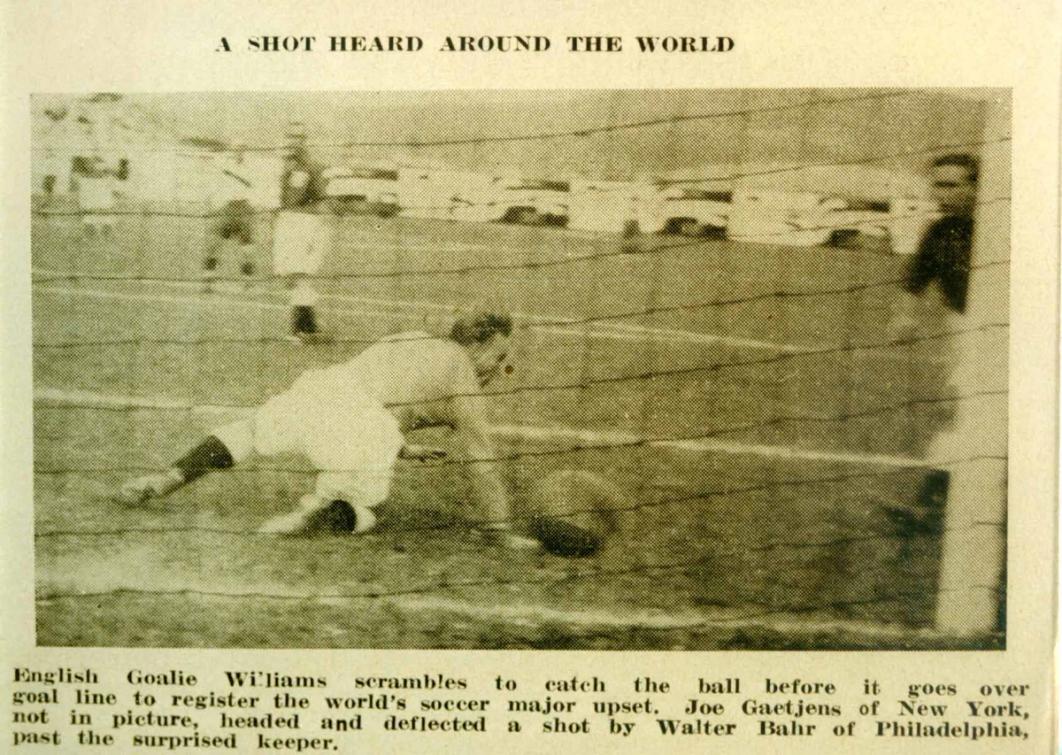
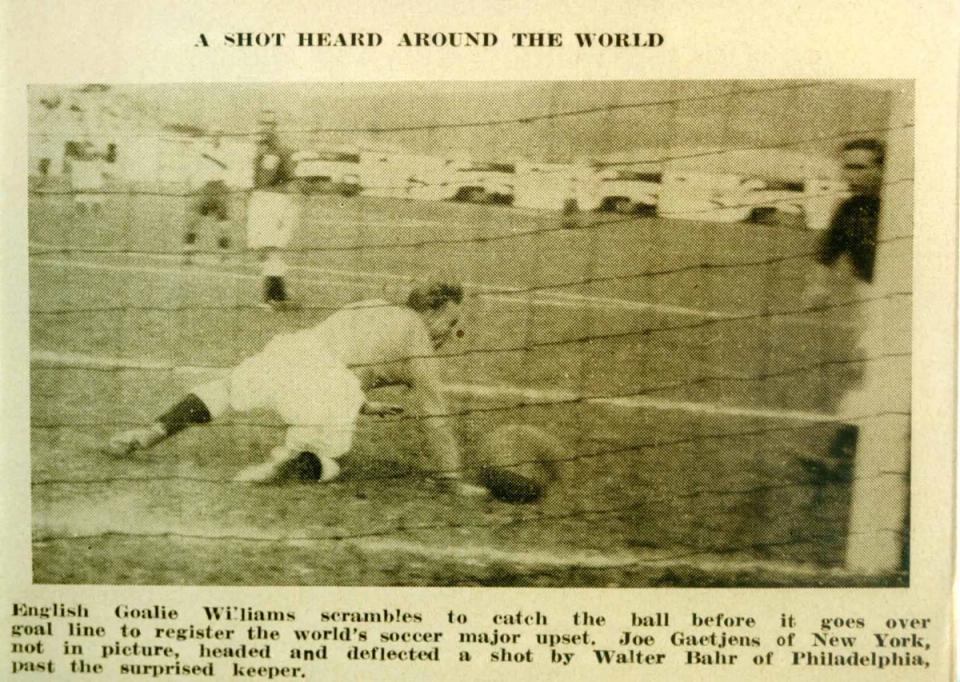
Forward Joe Gaetjens, who years later passed away as a political prisoner in his native Haiti, headed a Bahr feed past goalkeeper Bert Williams. In Associated Press reports, John Souza was credited with the goal. English journalists claimed Gaetjens' goal was an accident, that he misjudged the shot and deflected the ball off the top of his head, not his forehead, into the net.
"I had taken a shot from 25 yards out," Bahr said on the field describing the goal during a Belo Horizonte reunion in 1987. "Gaetjens was a highly skilled [player]. He turned my shot going into the left-hand post and into the right corner."
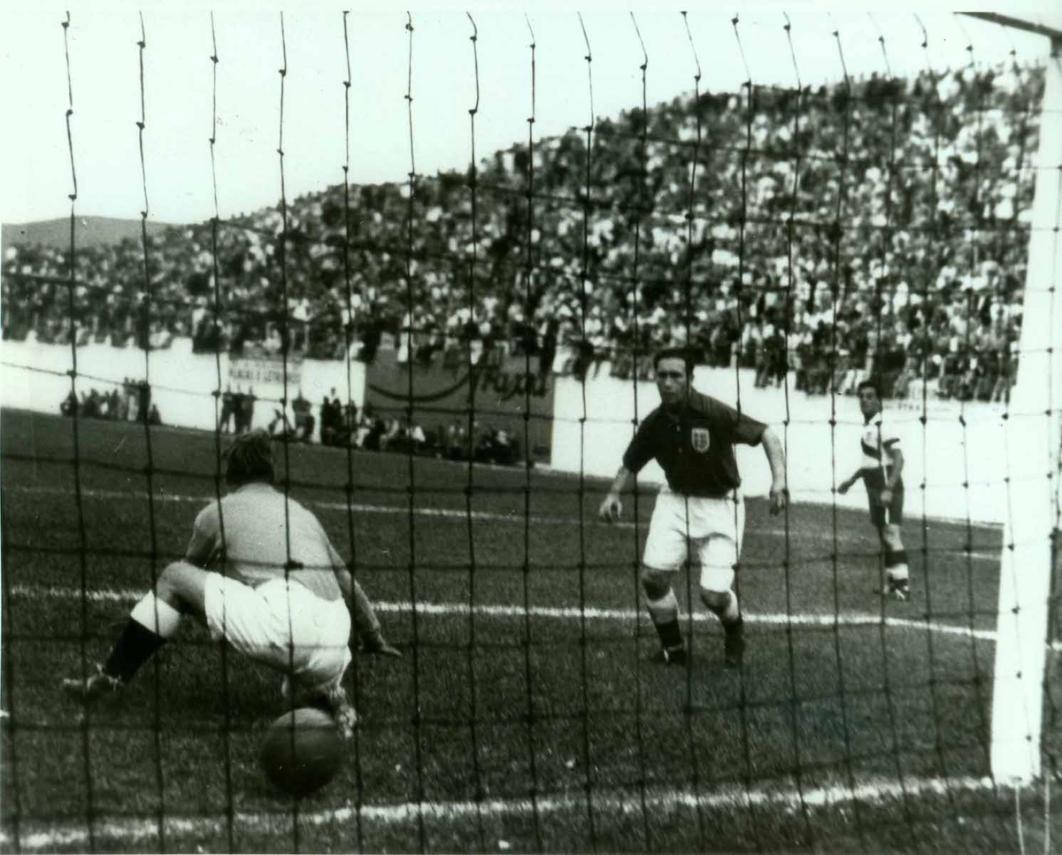
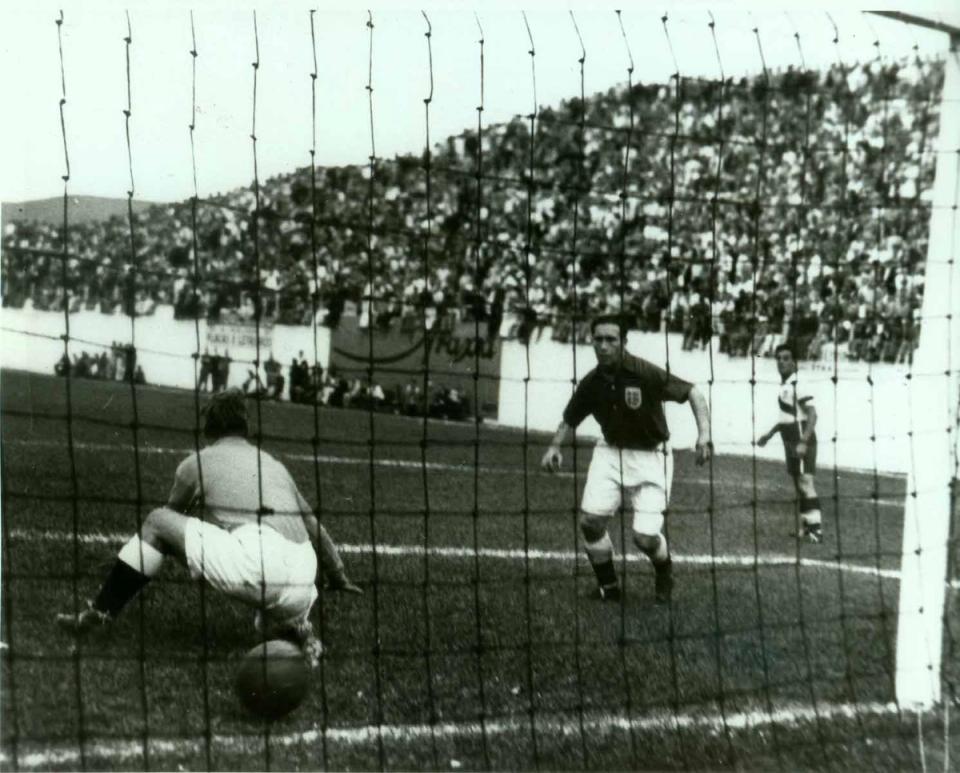
"The goal very rarely has been described adequately," Keough said. "It was a head-long dive. It looked like one of Joe's uncanny goals. If it touched [the top of his head], it would have gone sideways, perhaps off the field. It changed its direction slightly.
"Now, I thought, ‘They're going to bury us.’"
Bahr also thought the storm was coming.
“We were happy to get off the field with maybe a 2-0, 3-0 or 4-0 loss and to get a goal like that, we maybe awakened the sleeping giant,” he said.
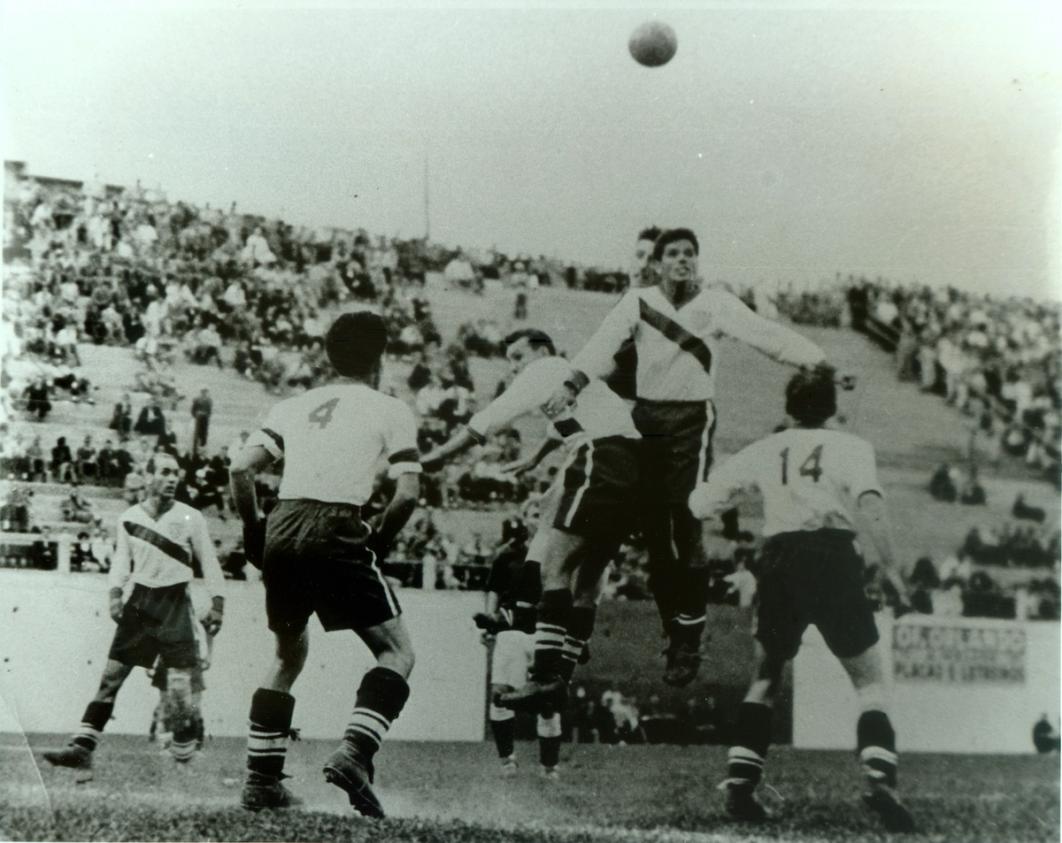
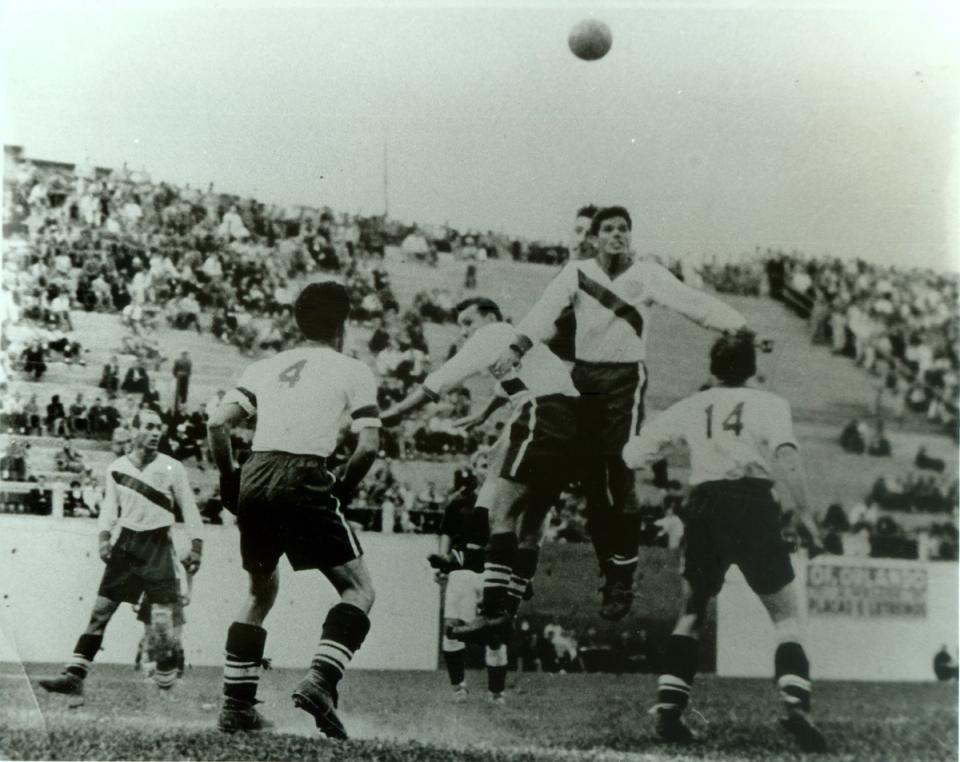
In the days prior to television coverage and the immediacy of the internet, the best way to get a message out to the rest of the world was by telephone. Not a mobile one, but one with a dial.
At halftime, the Reuters correspondent phoned in to tell his superiors that England was losing 1-0 to a "team I never knew played football," reported John Thompson of the Daily Mirror. The English pushed for the equalizer in the second half, but the Americans never wavered.
With 20 minutes left, Colombo made the defensive stop of the match, denying Stan Mortenson from going in alone on Borghi, tackling him on the edge of the penalty area. England protested and claimed a penalty kick should have been called. Instead, they were awarded a free kick outside the box.
"One of the English players had gotten by [the defense]," Pariani said. "Charlie tackled him just outside of the penalty area or it would have been a sure goal. We figured that saved the goal."
Realizing he was beaten, Colombo knew that he had to do something.
"Mortenson got a step on me," he said. "I dove head-long and tackled him. If they scored one, they would have scored six. The Italian referee [Generoso Dattilo] was shouting at me, 'Bono, bono.' That meant ‘good’ in Italian. The English thought he was giving me hell."
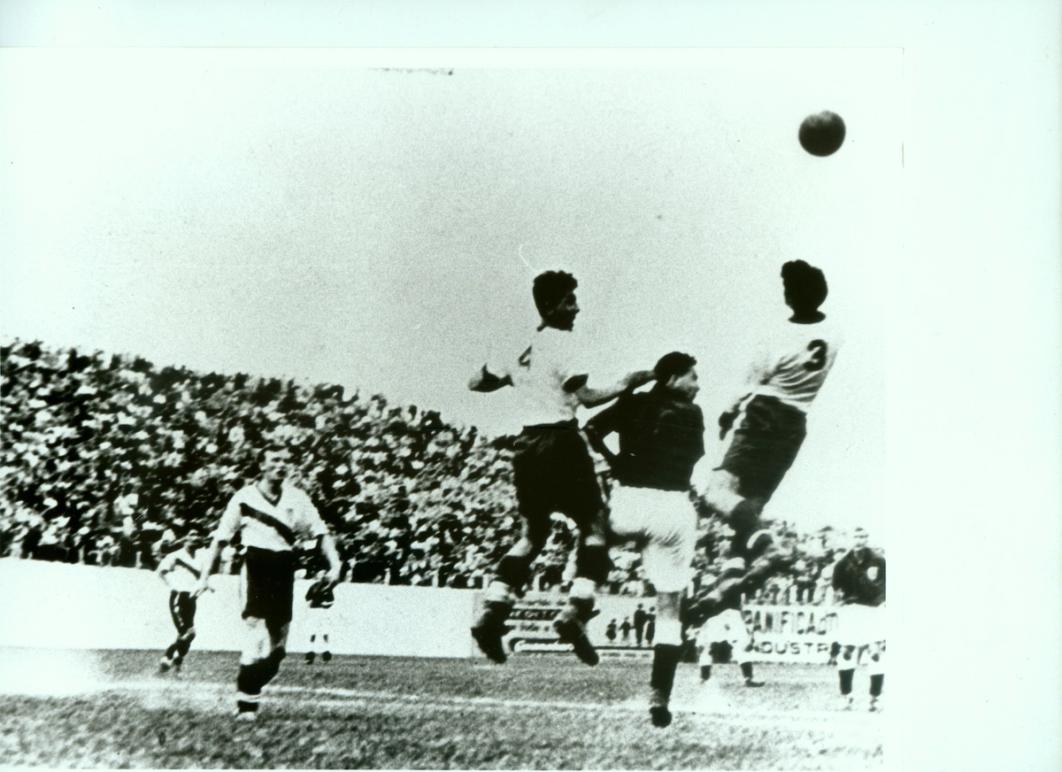
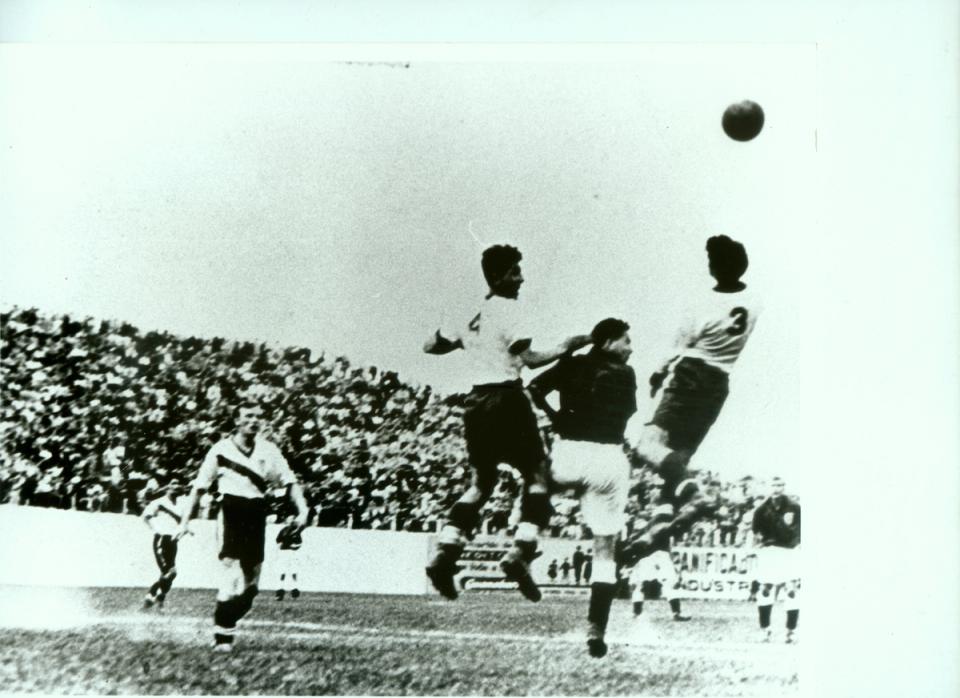
Keough admired his teammate's tenacity.
"Charlie took a head-long dive and hit him right in the back of the knees, a tackle anybody in the NFL would have been proud of," he said. "The momentum they were both going, they both were at the penalty spot when they stopped. Charlie bulldozed him all the way. He [Mortensen] was mad as hell as anybody would have been... It would have gotten a yellow card, maybe a red in today’s game."
That tackle saved the day.
When Dattilo blew the final whistle, players on both teams were beside themselves for different reasons.
"It was like the Yankees losing to an amateur team from Massapequa [in suburban N.Y.]," Maca said about his hometown outside of New York City.
"We were 70-1 underdogs. I should have bet $10 on the game,” Colombo said with a laugh.
England forward Wilf Mannion and his teammates were not laughing at the surprising and embarrassing result.
"We were just going to go on the field, and it was all over, and we could do anything we wanted," he said at the 1987 reunion. "We didn’t."
Afterwards, the English press complained about the field ("narrow, rutted and stony," one writer reported) and about the three non-citizens who played for the U.S.- Gaetjens, Maca and right halfback Ed McIllveny [Scottish citizen]. They were residents of the country, which at the time was enough for them to represent the United States.
Afterwards, the crowd climbed a fence and ran through a moat around the field to lift the Americans players onto their shoulders.
"Gee whiz, all the people were hollering and got us excited," Pariani said. "It was like a hurricane ran onto the field. Most of them went to the goalie, Frank Borghi. He didn't know what was going on.”
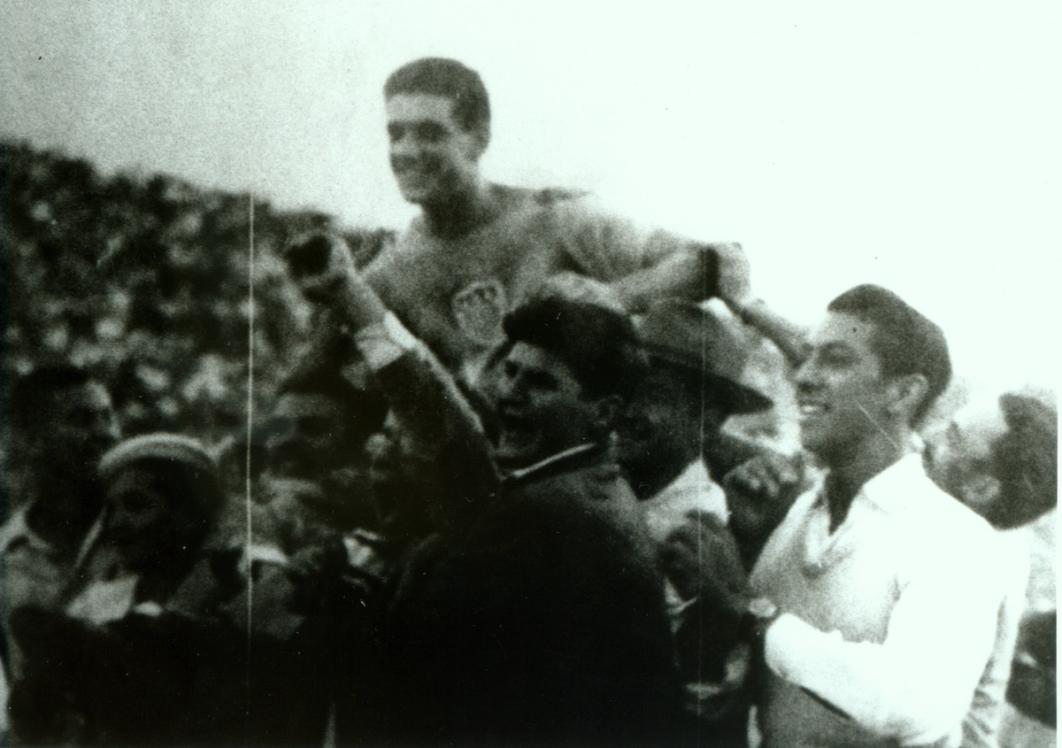
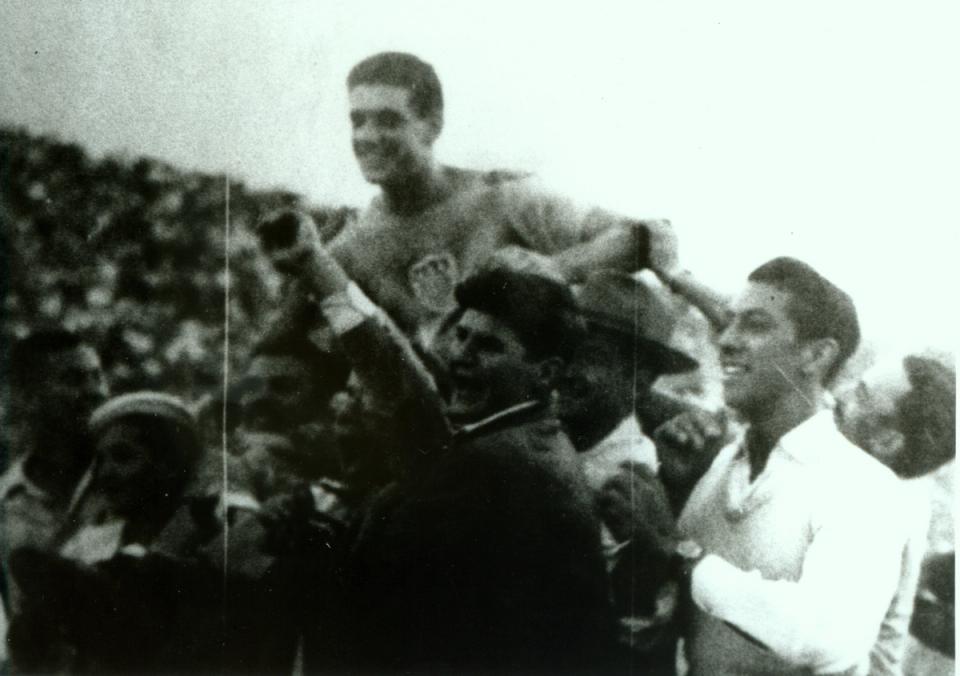
"Oh, my goodness, they were all jubilant. You don't stop and realize what you're doing until you're all done. You don't come to your senses [until] two or three hours later."
Keough did, quite early.
"I realized the magnitude at the time," he said. I came up to [outside right] Frank Wallace and said, 'Boy, do I feel sorry for these guys.' I realized they never would be able to explain or figure out how we beat them. I realized that this game would be famous 30 or 50 years from now."
It still is - 72 years later - and it probably will be for a very long time.
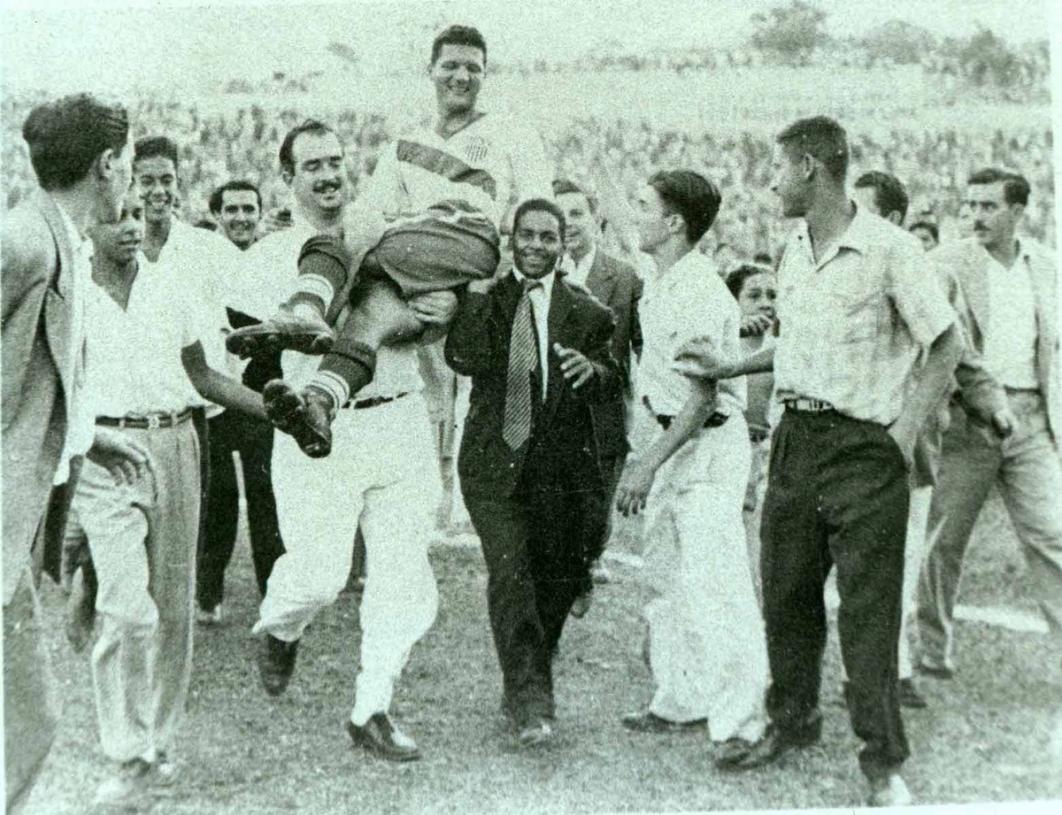
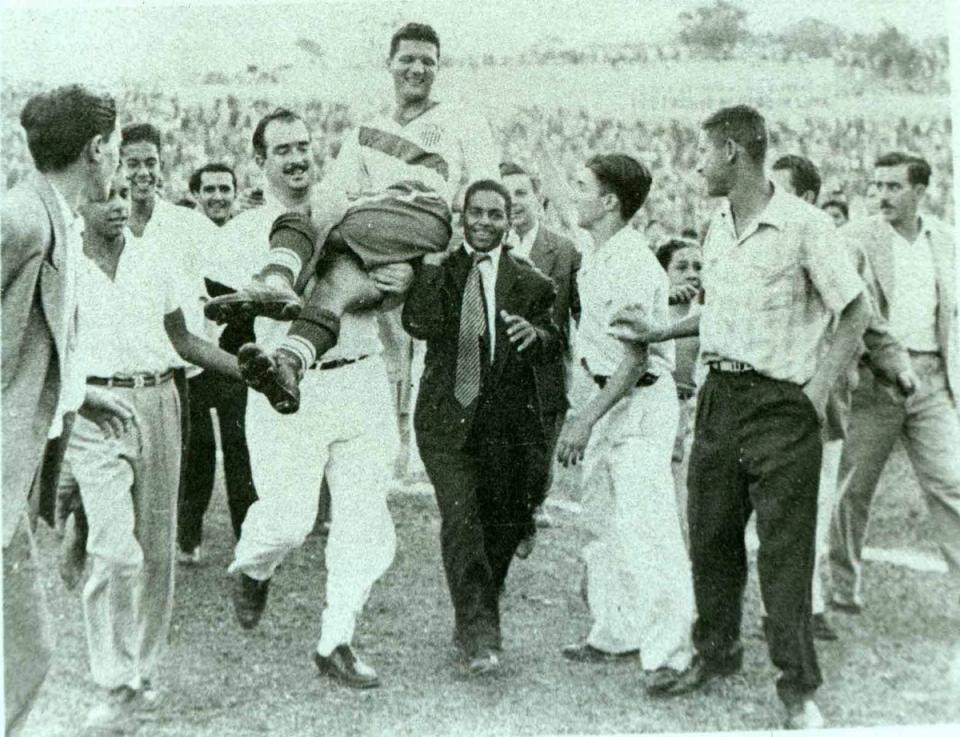
The shocking result hardly garnered any headlines back in the U.S. since soccer was so low on the sporting totem pole. Only one American sportswriter attended the match, St. Louis Dispatch soccer writer Dent McSkimming, who journeyed to the World Cup on vacation. Contrary to popular belief, McSkimming did not write a story about the game and the players' experiences until several weeks after the World Cup was completed.
The USA dropped its final Group 2 match, a 5-2 defeat to Chile. After equalizing 2-2 early in the second half, the South American side broke through with three goals over the final 36 minutes to pull away in Recife on July 2.
England and the U.S. were eliminated as group winner Spain advanced to the knockout stage. The upset still stands as one of the biggest upsets in soccer, if not sporting history.
Sixty years after that result, the teams met again at the 2010 World Cup in South Africa in a Group C match on June 12. The teams settled for a 1-1 draw, although the result had to feel more like a win to the USMNT, the decided underdog against a side that fielded English Premier League players from top to bottom.
"Defensively, we did our job," said goalkeeper Tim Howard, who made seven saves and bounced back from a penalty area collision with Emile Heskey. "It was backs to the wall. It wasn't pretty."
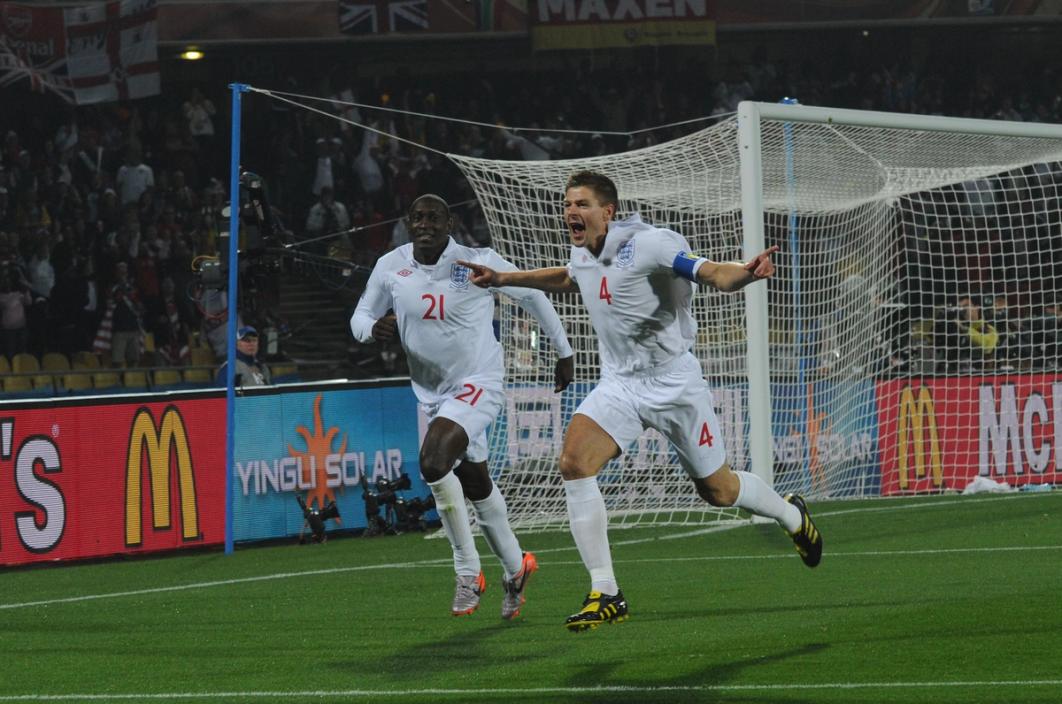
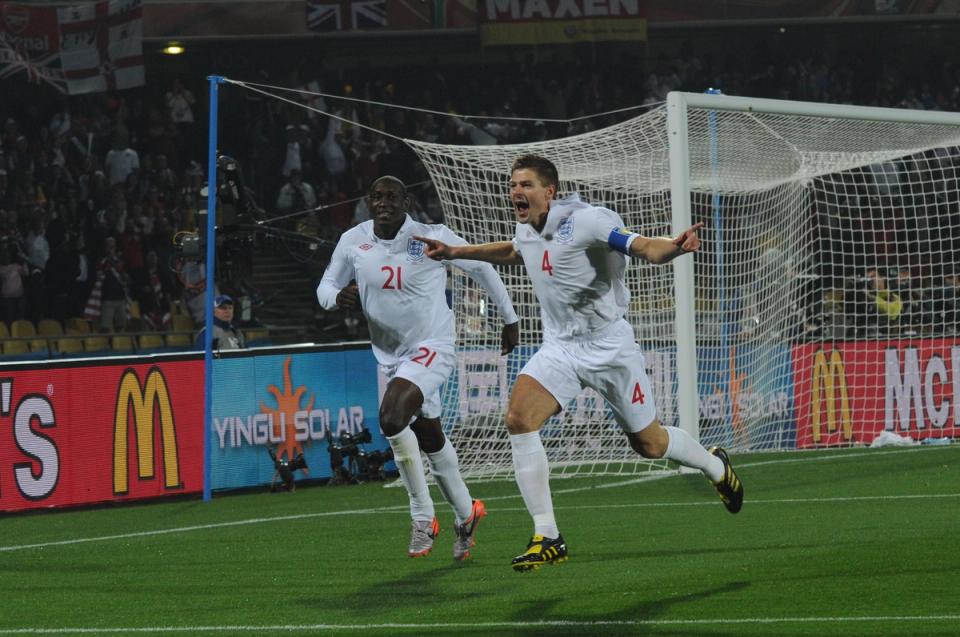
But good enough to secure a precious point before 38,646 enthusiastic spectators at Royal Bafokeng Stadium in Rustenburg, South Africa.
The English struck just four minutes into the match. Heskey got position on defender Jay DeMerit in the box and slipped a short pass to an onrushing Steve Gerrard, who beat defensive midfielder Ricardo Clark and Howard.
Howard called the goal "frustrating.”
“Pretty annoyed because the marking was a little lax, because it was the opening of the game, and we should be up for it."
The USMNT, however, equalized in the 40th on an incredible blunder by goalkeeper Robert Green. Clint Dempsey took a 25-yard shot with his left foot that surprised Green on the second bounce of a short hop. Green got both gloved hands on the ball, but let it trickle into the left side of the net. The goalkeeper put his head to the ground in embarrassment.
"I'm someone who always buys lottery tickets," Dempsey told the New York Daily News. "If you don't shoot, you don't score. Maybe that has something to do with it."
Six days later, the U.S. secured another point in a 2-2 draw with Slovenia before Landon Donovan's dramatic goal at the death boosted the USA to a 1-0 win against Algeria and into the knockout round on June 23.
